EHRI Seminar in Vienna: “I Deeply Enjoyed Attending this Enriching Mind Growing Fascinating Seminar."
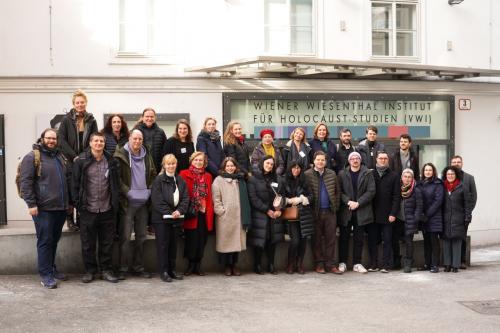
Using Digital Tools and Methods to Facilitate Holocaust Research
By Florine Miez, Vienna Wiesenthal Institute
The Vienna Wiesenthal Institute for Holocaust Studies (VWI) hosted the EHRI Methodology Seminar “What’s New in Austrian Holocaust research? Digital Tools & Methods” from January 16-18, 2024. The participants came to the VWI from Israel, USA, Sweden, Romania, the Czech Republic and also Vienna to spend three days learning about the latest developments in Austrian Holocaust research and new methods.
The seminar included lectures on topics such as "Digital Mapping", "Tracking and Tracing" in connection with Open Data or "Visual Sources" in Holocaust research. The facilitators – including archivists, researchers, software developers – of the EHRI-AT partner organisations, for example erinnern:at or the INJOEST (Institute for Jewish History in Austria), presented their own databases and methods, such as the victim database produced by the Documentation Centre of Austrian Resistance (DÖW) or the "OpenAtlas" database system (Austrian Centre for Digital Humanities and Cultural Heritage). The National Fund of the Republic of Austria for the Victims of the Holocaust, the Centre for Jewish Studies at the University of Graz and the VWI were also represented with presentations on projects connected to digital mapping and online exhibitions.
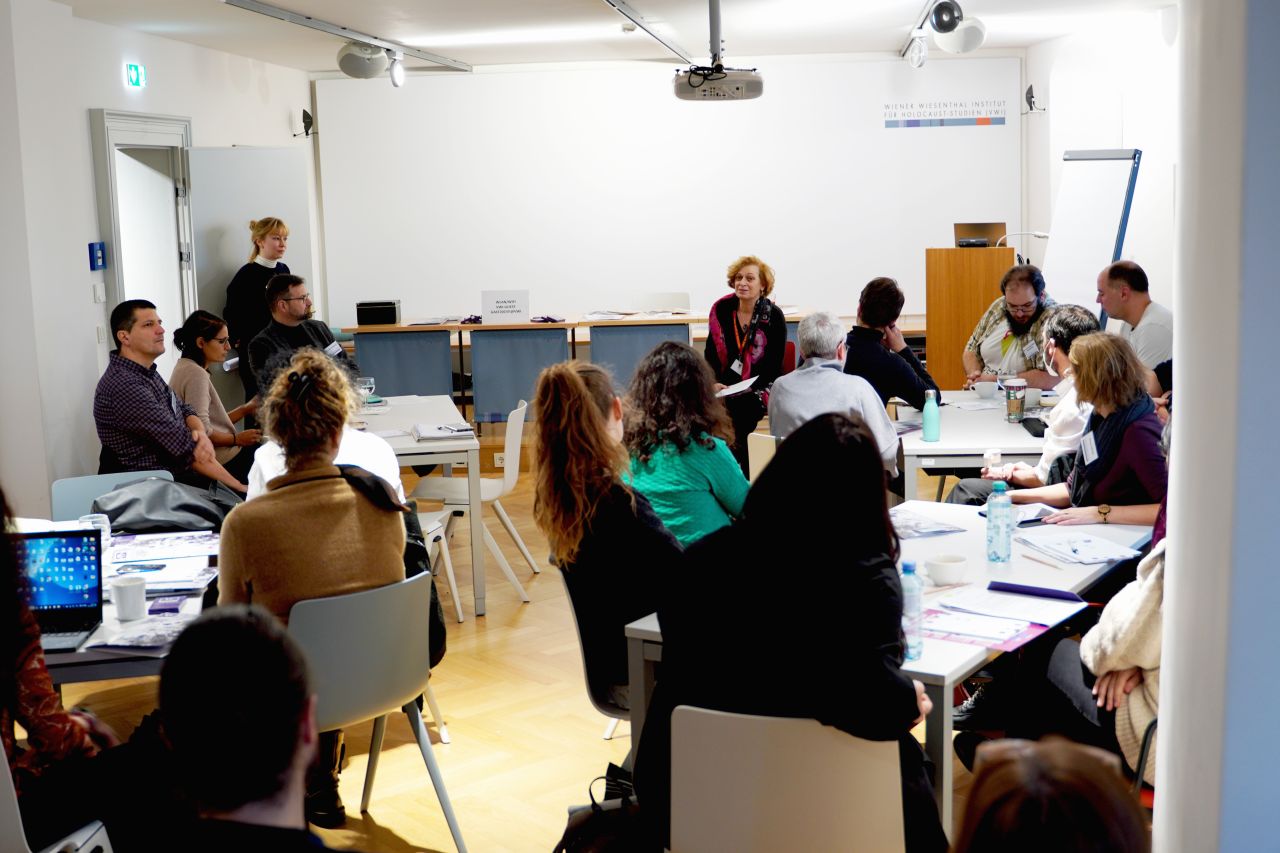 Among the international EHRI partner organisations, the NIOD Institute for War, Holocaust and Genocide Studies (Amsterdam) and the Center for Holocaust Studies at the Leibniz Institute for Contemporary History (Munich) were represented. The EHRI partners presented digital tools and offers of the European Research Infrastructure such as the EHRI Portal, the Conny Kristel Fellowships and the EHRI podcast, to which the VWI also contributed an episode on Simon Wiesenthal's book "The Sunflower".
Among the international EHRI partner organisations, the NIOD Institute for War, Holocaust and Genocide Studies (Amsterdam) and the Center for Holocaust Studies at the Leibniz Institute for Contemporary History (Munich) were represented. The EHRI partners presented digital tools and offers of the European Research Infrastructure such as the EHRI Portal, the Conny Kristel Fellowships and the EHRI podcast, to which the VWI also contributed an episode on Simon Wiesenthal's book "The Sunflower".
The fourteen participants also presented their own research work in a Pecha Kucha panel, to mention just a few topics: Jewish women in concentration and labour camps in Austria 1944-1945 using the example of the Lenzing Cam; or digital photo constellations; or the question of the representation of children and grandchildren of Holocaust survivors in museums and archives. They discussed their questions together and supported each other with problems in their own research.
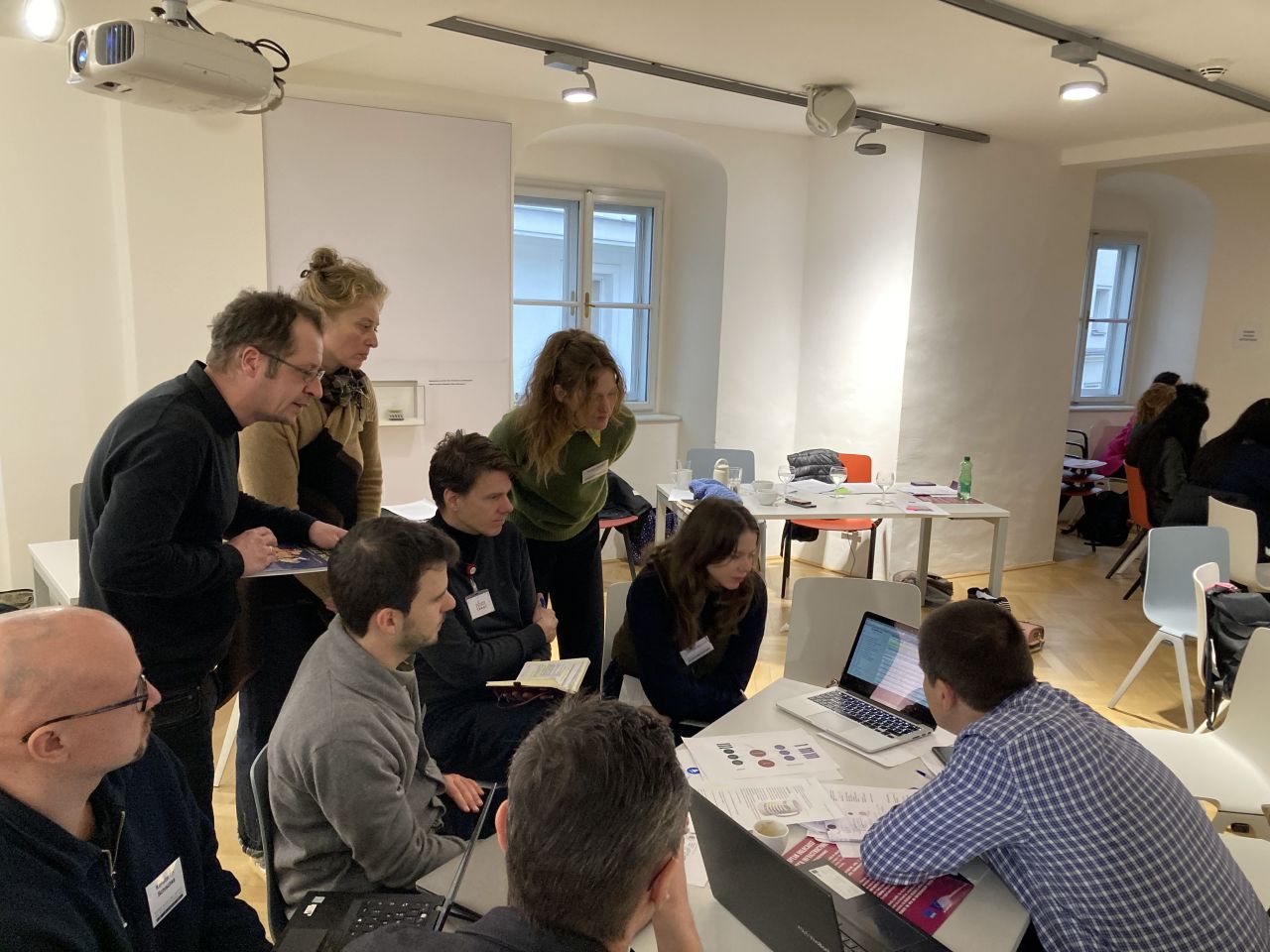
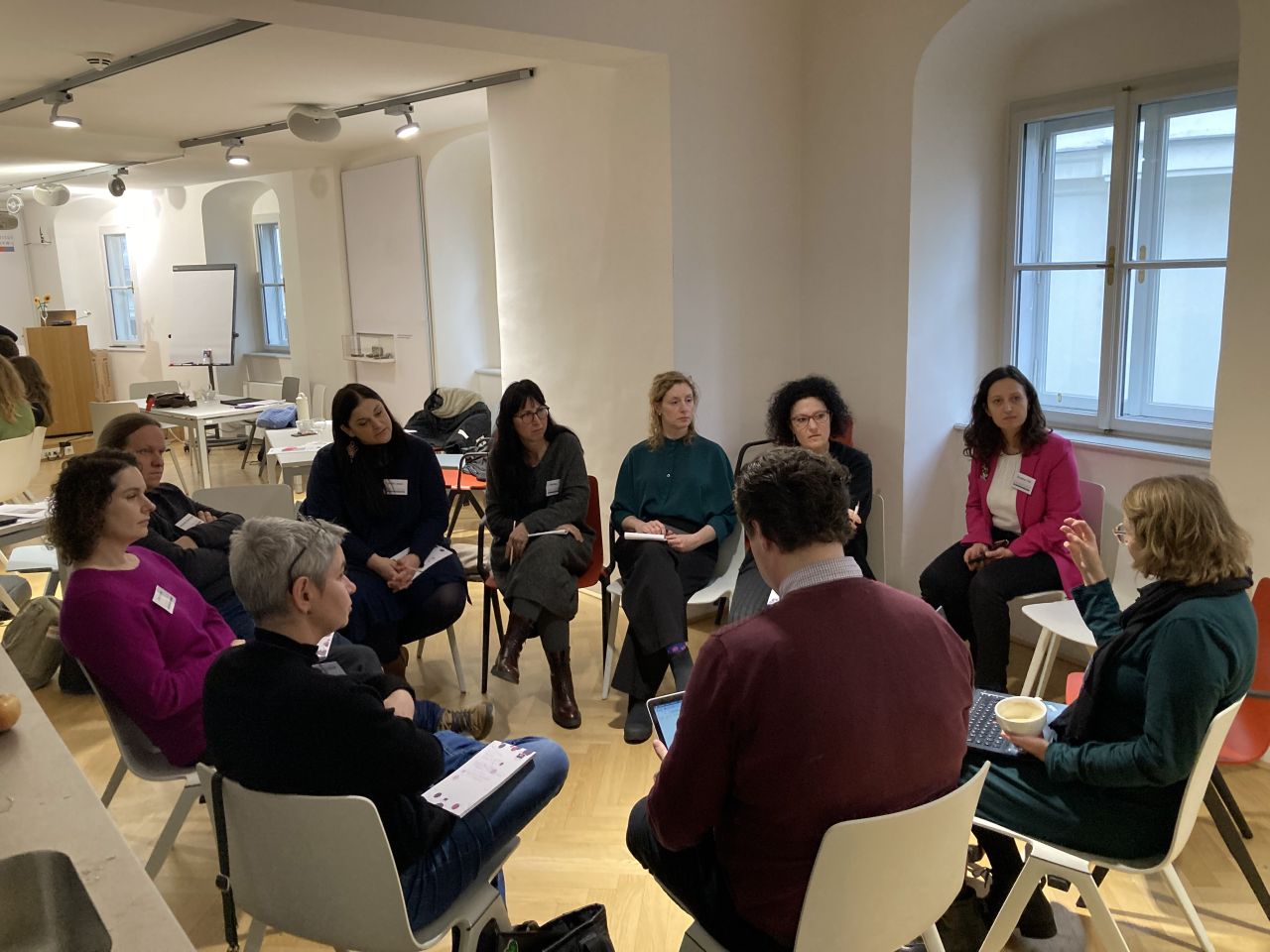
In break-out sessions, the participants were encouraged to deepen what they had learned. In three sessions, the participants learned, for example, how they could use the EHRI Document Blog or the previously presented databases for themselves and their own research. The second part of the break-out sessions focussed more on the making of podcasts and online exhibitions. The break-out group session on the last day dealt with oral history collections, online curriculum development and working with visual sources. After the inputs, the participants were able to discuss their own research and experiences with experts.
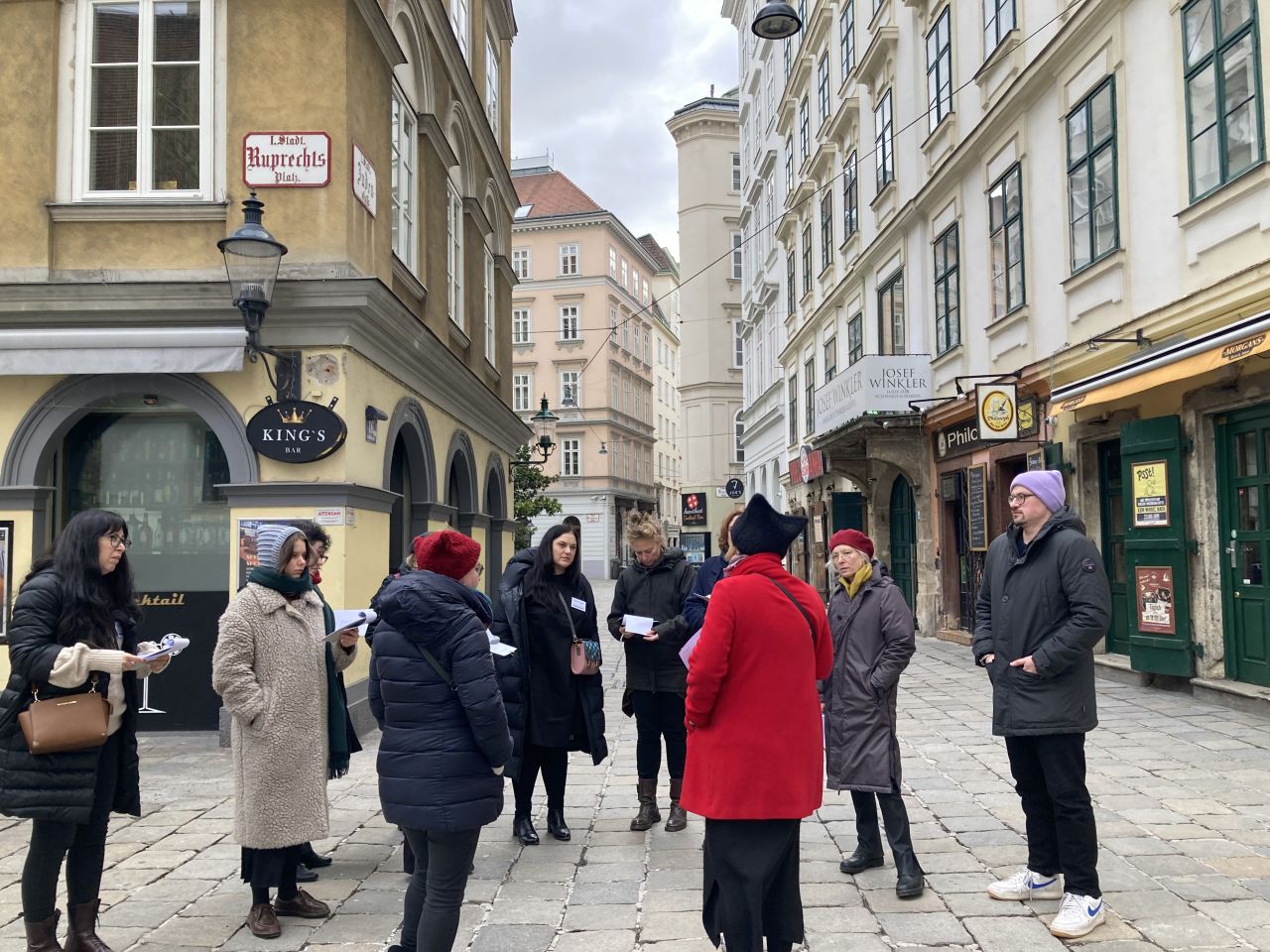 In addition to the content and break-out sessions, the DÖW and the VWI also presented two commemorative tours, where the participants explored Vienna's first district. These tours provided an insight into the history of Hungarian forced labourers during the Nazi era, who were deported to Vienna via the Strasshof concentration camp. The tour led through the district with several stops, for example, at the former headquarters of the Vienna Jewish Council of Elders (Ältestenrat). The second tour introduced the "Memento Wien" app, an online tool with an integrated city map that provides information on victims of the Nazi dictatorship. Archive documents and photos give users an understanding of the history and last addresses of the victims and help to visualise the deprivation of rights and banishment of the Austrian Jews in today's Vienna.
In addition to the content and break-out sessions, the DÖW and the VWI also presented two commemorative tours, where the participants explored Vienna's first district. These tours provided an insight into the history of Hungarian forced labourers during the Nazi era, who were deported to Vienna via the Strasshof concentration camp. The tour led through the district with several stops, for example, at the former headquarters of the Vienna Jewish Council of Elders (Ältestenrat). The second tour introduced the "Memento Wien" app, an online tool with an integrated city map that provides information on victims of the Nazi dictatorship. Archive documents and photos give users an understanding of the history and last addresses of the victims and help to visualise the deprivation of rights and banishment of the Austrian Jews in today's Vienna.
The three-day seminar concluded with a wrap-up and feedback round. The participants in the methods seminar summarised their time at the VWI positively:
|
“I deeply enjoyed attending this enriching mind growing fascinating seminar. New tools and subjects were presented. Everyone was friendly, supportive and very professional. More than I expected.” “Keep the good work up!” “The days were a perfect mix of presentations, formal discussions, and informal conversations. My research and teaching will benefit from participating in this seminar.” “EHRI is a great source and resource to use in Holocaust research, education and exhibition work. It connects the experts in the field.” “It was a great, extremely interesting and very pleasant event. The choice of subject, lecture and participants was just a winning combination. Thank you!” “A bringing together of dynamic thinkers and doers across a range of fields offering a wide scope of insightful and innovative perspectives around the topic.” |
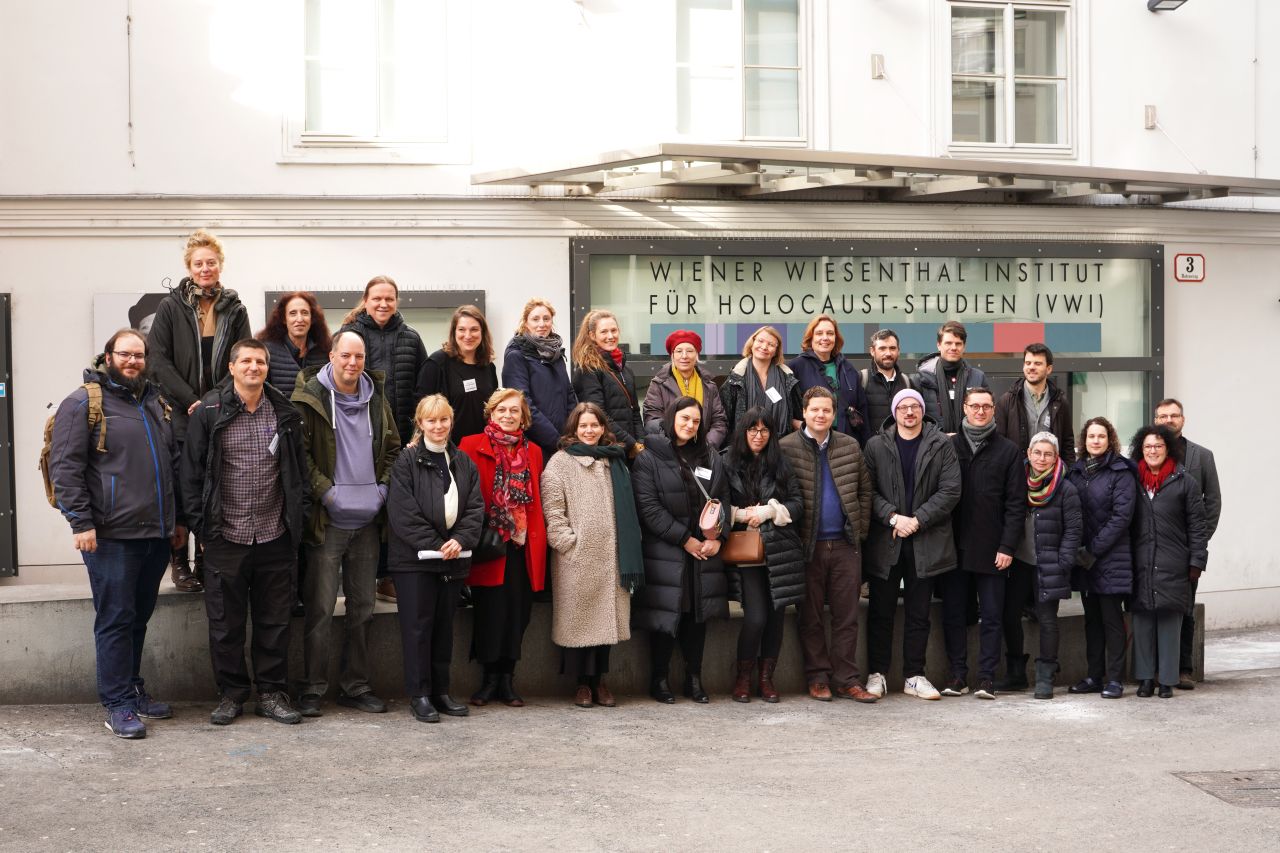
Images by VWI and EHRI